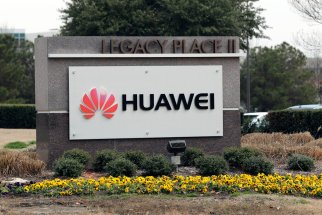Public or private: all that matters is timely, quality health care
Read this article for free:
or
Already have an account? Log in here »
To continue reading, please subscribe:
Monthly Digital Subscription
$0 for the first 4 weeks*
- Enjoy unlimited reading on winnipegfreepress.com
- Read the E-Edition, our digital replica newspaper
- Access News Break, our award-winning app
- Play interactive puzzles
*No charge for 4 weeks then price increases to the regular rate of $19.00 plus GST every four weeks. Offer available to new and qualified returning subscribers only. Cancel any time.
Monthly Digital Subscription
$4.75/week*
- Enjoy unlimited reading on winnipegfreepress.com
- Read the E-Edition, our digital replica newspaper
- Access News Break, our award-winning app
- Play interactive puzzles
*Billed as $19 plus GST every four weeks. Cancel any time.
To continue reading, please subscribe:
Add Free Press access to your Brandon Sun subscription for only an additional
$1 for the first 4 weeks*
*Your next subscription payment will increase by $1.00 and you will be charged $16.99 plus GST for four weeks. After four weeks, your payment will increase to $23.99 plus GST every four weeks.
Read unlimited articles for free today:
or
Already have an account? Log in here »
Hey there, time traveller!
This article was published 06/07/2020 (1984 days ago), so information in it may no longer be current.
There’s nothing unusual about the Pallister government tapping private clinics to help clear a backlog of elective surgeries postponed during the COVID-19 pandemic. The province, including under the former NDP government, has been contracting with the private sector for years to provide health-care services to Manitobans.
Health Minister Cameron Friesen last week issued a request for proposal for a wide range of elective surgeries, including ophthalmology and pediatric dental surgery. The move comes after more than 7,000 procedures were put on hold starting in March to free up hospital capacity in the event of a spike in COVID-19 patients.
Not surprisingly, Manitoba’s public-sector unions lit their hair on fire over the announcement, claiming the move was another example of the Tory government’s alleged agenda to privatize health care.
If a health-care service isn’t provided by a government agency or a not-for-profit organizations run by the province, unions are automatically opposed to it. Profit, they claim, has no place in health care — even if private organizations can provide services to government more efficiently, and at a lower cost, than government.
There has always been a blend of private and public providers in Manitoba’s health-care system, including for services that fall under the Canada Health Act, which does not ban provincial governments from contracting with private providers.
The reality is, profit has been part of the health-care system for years, including under the NDP from 1999 to 2016. The privately-owned Western Surgery Centre, for example, has been providing safe, reliable services for the Manitoba government for years. The clinic performed 1,403 cataract surgeries for the province in 2019-20.
Dynacare, also privately owned, provides a wide range of lab testing for the province, including blood work. The province has for decades contracted with private providers for blood tests and X-rays.
Private home care has been used in Manitoba for many years to cover peak demand periods. The province is also filled with walk-in clinics and family doctors’ offices whose physicians bill government directly, but who operate privately.
There has always been a blend of private and public providers in Manitoba’s health-care system, including for services that fall under the Canada Health Act, which does not ban provincial governments from contracting with private providers. What it does prohibit, among other things, is physicians billing patients directly for “medically necessary” services.
That’s not what Friesen announced last week: the elective surgeries in question are insured services paid for by government. Like many elective procedures, some may be performed in hospital or an urgent care centre, some may be done in a private facility. In all cases, patients don’t pay directly for the service; the government picks up the tab.
So what’s wrong with government putting out a RFP to both the private and public sectors, as Friesen did, to see who can do the procedures at the best price in a timely fashion?
Nothing.
In fact, Manitobans should always demand government contract with organizations that can provide the best service at the best price. If patients are getting quality service and are covered under medicare, does it really matter who’s providing the service?
It shouldn’t.
Like all medical facilities, private clinics must be accredited and certified. They are staffed with licensed doctors and professionals, just like public-sector entities.
Opposition to Friesen’s announcement had everything to do with ideology and nothing to do with ensuring Manitobans receive quality health care. Public-sector unions don’t like the idea of private organizations providing health-care services because it offends their ideological beliefs. They have no evidence private clinics provide inferior or unsafe care.
If public-sector hospitals or urgent care centres can provide government with the best service at the best price to help reduce the backlog of elective surgeries, that’s where the procedures should be performed. If private clinics can handle some or all of the load at a preferred price, then they should get some, or all, of the contracts.
The only thing that should matter is whether patients are receiving timely, quality care — and taxpayers are getting the best bang for their buck.
tom.brodbeck@freepress.mb.ca

Tom has been covering Manitoba politics since the early 1990s and joined the Winnipeg Free Press news team in 2019.
Our newsroom depends on a growing audience of readers to power our journalism. If you are not a paid reader, please consider becoming a subscriber.
Our newsroom depends on its audience of readers to power our journalism. Thank you for your support.






